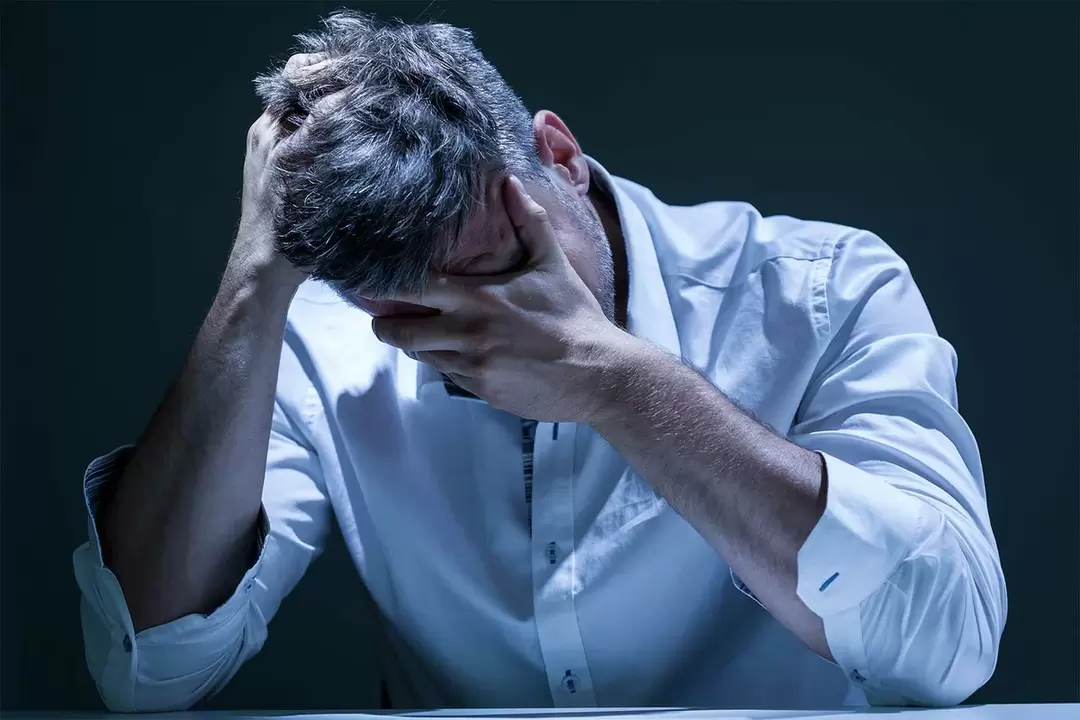
The term "prostatitis" refers to a chronic or acute inflammatory process of any etiology that occurs in the prostate gland. Since the prostate is an exclusively male organ, prostatitis only develops in men. There are many types of prostatitis, but any type of prostatitis can be divided into acute and chronic.
Acute prostatitis occurs under the influence of many factors - the presence of bacteria, viruses, protozoa, under the influence of poor nutrition, sedentary lifestyle, bad habits and more. >
The prostate is a gland of external secretion, i. e. the secretion that it produces enters the external environment. In humans, the prostate is an unpaired organ whose activity depends on male sex hormones, namely androgens and steroid hormones.
The prostate gland is located behind the bladder, closing the initial part of the urethra into which its ducts open.
The location of the prostate is responsible for one of its functions - during an erection it blocks the exit from the bladder. It is the prostate gland that is responsible for the feeling of orgasm, it happens due to the abundant supply, or innervation, of the glandular nerves.
temperature
One of the first signs of acute prostatitis, regardless of the causes of its occurrence, is an increase in temperature. As with any inflammatory process that occurs in the body, the temperature rises to subfebrile levels - or about 37, 5-380FROM.
Moreover, the more intense the immune response, i. e. the body’s response, the higher the temperature. That is, at the height of the disease, the body temperature can rise to forty degrees.
Naturally, an increase in temperature alone may not indicate the onset of prostatitis.
Usually, the first symptoms of prostatitis are difficulty urinating using extra muscles - the abdominal muscles, disruption of the ejaculation mechanism, itching, burning, and other unpleasant events in the perineum or genitals.
Frequent visits to the toilet
Also, it is an increased urge to urinate (with a small amount of urine excreted), a feeling of "residual urine" after emptying the bladder, an unpleasant orgasm and, as a result, decreased libido.
General weakness
As with any inflammatory disease, there is intoxication syndrome, which includes general weakness, impaired performance, nausea, and possibly vomiting.
Nervous system disorders are also noted - depression, irritability and others.
What causes prostatitis
There are also predisposing factors for prostatitis - hormonal imbalance, including age, prolonged sexual abstinence, smoking, general hypothermia, fecal retention, sedentary lifestyle, lack of physical activity, overheating, history of chronic sciatica, immunodeficiency status, age-related changes. Body.
Particular attention should be paid to such a predisposing factor as inflammatory diseases of the kidneys and urinary tract, as the infection may spread above.
It happens that the disease begins with urethritis
The initial stage of prostatitis is characterized by a fairly typical clinical picture - lethargy of the urinary tract, increased urge to urinate, fever. Possible pain in the perineum. Sexual function is often impaired.
However, sexual dysfunction is more of a psychological aspect, physiological or clinical week. The ejaculation process itself either does not bring pleasure at all, or even causes pain, causing a conditioned reflex to develop, leading to a decrease in libido.
Purely physiologically, prostatitis can lead to a lack of potency only at a late stage. The initial stage is also called the "first signs" stage - urination does not start immediately, as usual, but with a slight delay.
Already at this stage the prostate is enlarged, but nonetheless painless on palpation. At the same time, the borders of the prostate are well palpated, and the median groove - as normal. The most interesting thing is that the stage of the first signs can last quite a long time - up to three years.
Urology patients are becoming more and more young in recent years. In other words, inflammation of the prostate gland "rejuvenates" due to the development of "outrageous" rest - surfing, diving, skiing and kayaking. Inadequate exercise and complete hypothermia of the body can lead to prostatitis.
And, paradoxically, an overly "quiet" lifestyle can also lead to the development of prostatitis. This is caused by blood and lymph stagnation in the pelvis - a sedentary and sedentary lifestyle is not the best way to disperse blood in the organs.
Insufficiently cured inflammatory diseases that may not be related to the pelvic organs at all are also factors prone to prostatitis. This is due to the fact that infection from the primary focus (of any etiology) can penetrate hematogenously or lymphogenically into the prostate gland. In the presence of swelling in the pelvis, the infection settles there and begins to multiply.
It also happens that prostatitis occurs due to stress. Stress weakens the immune system, thus increasing the risk of prostatitis.
STDs - "Sexually Transmitted Diseases" - one of the leading causes of prostate inflammation. Gonorrhea, if not treated properly, almost always causes prostatitis.
However, do not forget that you can not go from one extreme to another. Prolonged sexual abstinence again causes blood and lymph stagnation in the pelvic organs, secreting stagnation in the prostate, leading to prostatitis.
The prognosis for timely detection of this disease and adequate treatment is favorable, however, if the disease remains accidental, it is possible to add chronicity or secondary infection, which will lead to quite unfortunate consequences.



























